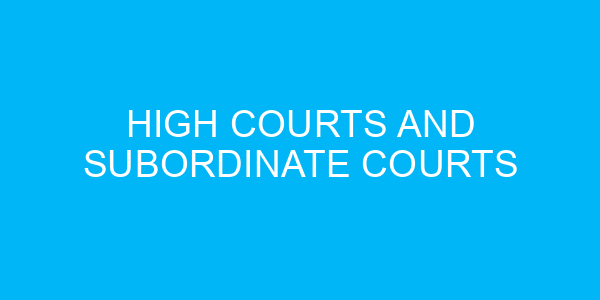51. The jurisdiction of a High Court extends to which of the following territories?
a) The entire country
b) The respective state where it is located
c) The union territories
d) All of the above
52. Which one of the following statements is true about the jurisdiction of High Courts over union territories?
a) High Courts have no jurisdiction over union territories
b) High Courts have concurrent jurisdiction with the Supreme Court over union territories
c) High Courts have exclusive jurisdiction over union territories
d) High Courts have appellate jurisdiction over union territories
53. The highest court of appeal in a union territory is:
a) The Supreme Court
b) The High Court of the respective state
c) The Lieutenant Governor
d) The District Court
54. The power to establish a High Court for a union territory lies with:
a) The President of India
b) The Parliament
c) The Chief Justice of India
d) The Lieutenant Governor
55. Which one of the following statements is true about the jurisdiction of a High Court in a union territory?
a) It has jurisdiction over all matters within the union territory
b) It has jurisdiction only over matters related to the central government
c) It has jurisdiction only over matters related to the state government
d) It has limited jurisdiction in certain matters as specified by law



